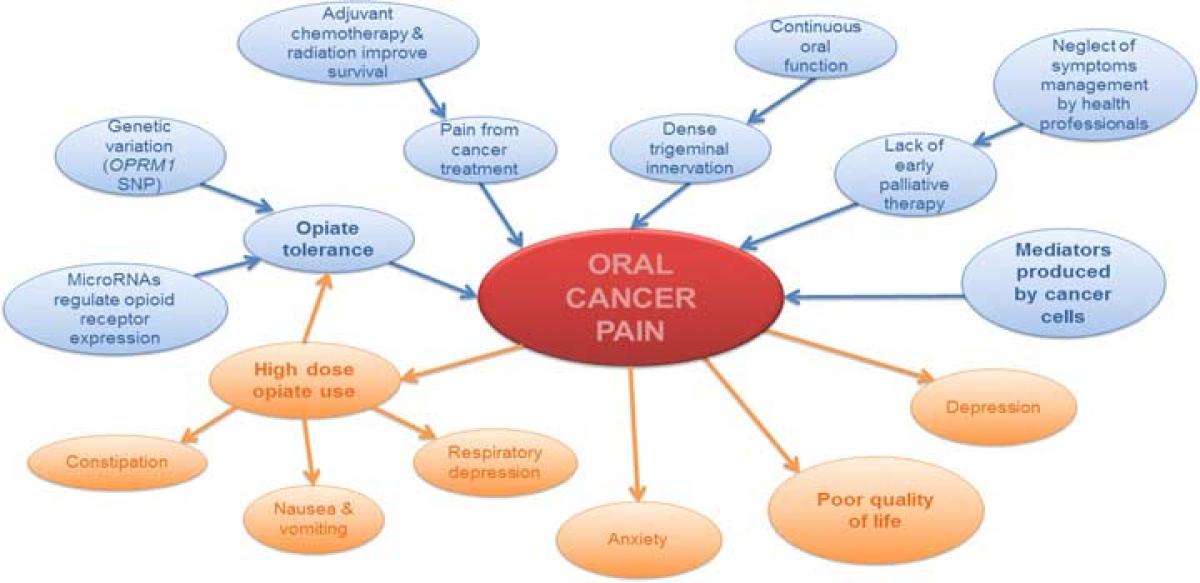Oral cancer at an alarming high

Oral cancer at an alarming high. Oral hygiene has been steadily declining with the increase in the intake of tobacco by people, including many youngsters over the years.
Oral hygiene has been steadily declining with the increase in the intake of tobacco by people, including many youngsters over the years. The problem has got accentuated worldwide and India is no exception, especially in the Hindi speaking States. Statistics reveal that oral cancer resulted in 135,000 deaths in 2013 up from 84,000 in 1990.
.jpg)
However, many believe the figure would go up by 20 per cent as many cases remain Sadly, there is little awareness of the consequences of the intake of raw or even processed tobacco in the form of cigarettes and what its prolonged use could have on human health. Importantly, oral cancer, a type of malignant growth of the oral cavity, is one of the most common types of cancer.
It is rated 3rd in India and 12th globally. Experts believe that 75 percent of oral cancers are linked to modifiable behaviours such as tobacco use and excessive alcohol consumption. Other factors include poor hygiene, irritation caused by ill-fitting dentures and other rough surfaces on the teeth, poor nutrition and some chronic infections caused by bacteria or viruses.
Chewing betel, paan and Arcea is known to be a strong risk factor for developing oral cancer. And in our country this is the most common form of cancer, representing 40 per cent of all cancers compared to just 4 per cent in UK and other western nations. Shockingly, 130,000 people succumb to oral cancer annually though the actual figure is probably much higher as such diseases go unrecorded in rural areas of the country.
Further, there are links to young men and women who use conventional ‘smokeless’ chewing or spit tobacco. Promoted as a safer alternative to smoking, it has actually not proven to be any safer for those who use them vis-à-vis oral cancers. From a gender perspective, in India the ratio of occurrence of oral cancer works out to two-three men compared to each woman.
Undoubtedly, lifestyle factors still remain the biggest cause, specially the rapid increase in the number of women smokers --- bidi for rural women and cigarettes for their urban counterparts. Surprisingly, recent records show the fastest growing segment of the oral cancer population is non-smokers under the age of 50. Obviously, an indication of a paradigm shift in the cause of the disease.
According to a recent Oral Cancer Foundation report on the anterior of the mouth, tobacco and alcohol associated cancers have declined along with a corresponding decline in smoking while posterior of oral cavity sites associated with HPV16 viral cause are increasing. It stands to reason that strategies for enhancement of detection (and diagnostic techniques of oral cancer) and approach for prevention need to be seriously considered and implemented.
Diagnosis is presently done by checking the patient for traces of pre-malignant lesions like erythroplakia (red lesions) or leukoplakia (white lesions). Survival rates for stage one cancers hover around 80 to 90 per cent and hence early detection is necessary for survival of patients. Furthermore, after treatment, rehabilitation might be necessary to improve movement, chewing, swallowing and speech. Speech and language pathologists could also be involved at this stage.
Taking cognizance, the Union Health Ministry has formulated the National Cancer Control Programme envisaging control of tobacco consumption in all forms through advertisements to raise general awareness amongst the masses. Intake of fresh green vegetables has been highly recommended for prevention of oral cancer.
Scandalously, the 5-year survival rate in the country is yet to improve, and it has been decades. Hence, an increased impetus is required for awareness generation along with prevention and early detection, thereby reducing morbidity and enhancement of survival rates amongst patients.
By Oishee Mukherjee

